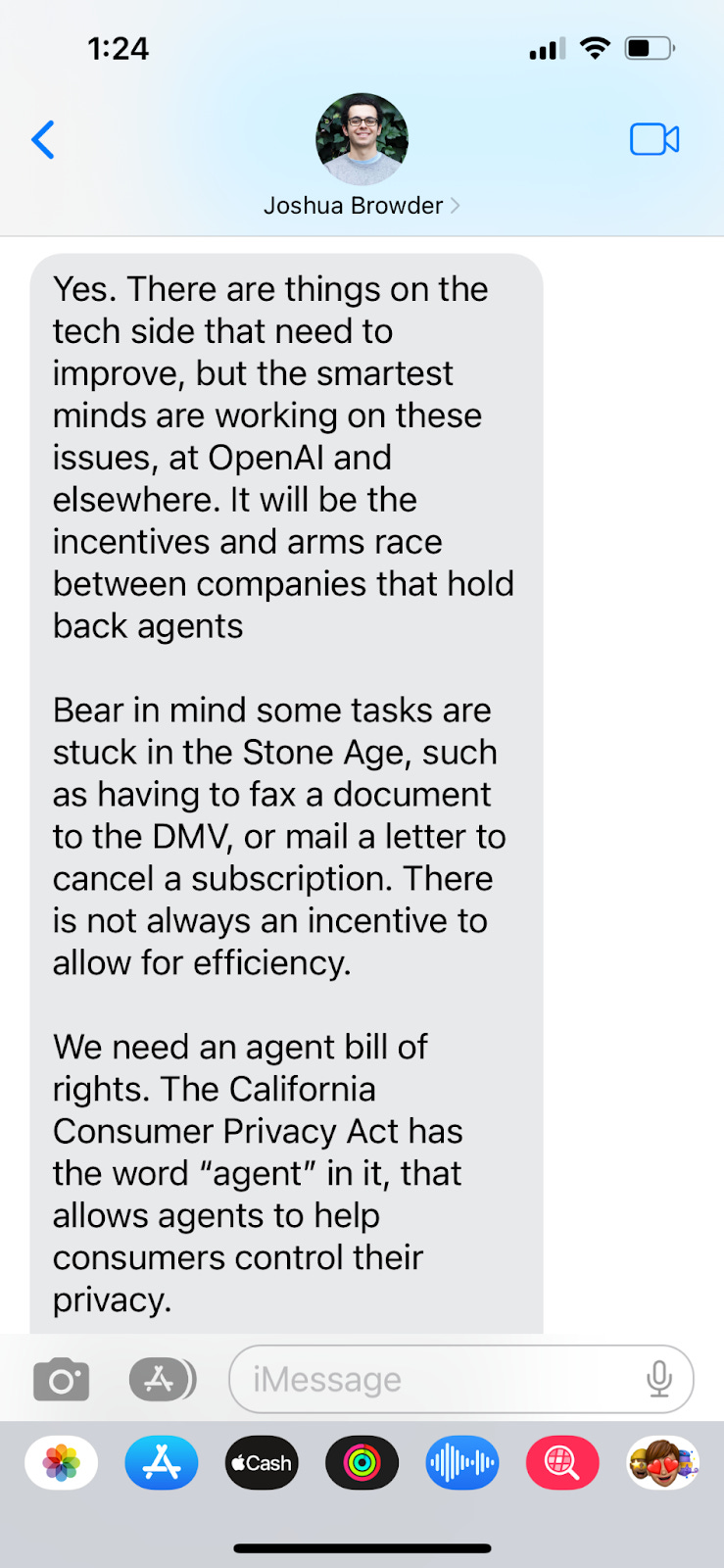OpenAI Generates Videos & Trillion-Dollar Headlines...January VC Funding Not Exactly A Bounce Back...Benchmark in the VC Directory
Plus, self-driving cars face the wrath of San Francisco locals
Eric is going to kick us off this week in The Main Item. Madeline will jump in after that.
Let’s dive in.
The Main Item
OpenAI Video Marvel & Altman’s Quest for Trillions
If you thought Sam Altman’s dramatic ouster as CEO of OpenAI followed by his contentious return would make him more cautious or restrained, think again.
Altman’s ambition remains relentless.
OpenAI announced a truly draw-dropping leap in generative artificial intelligence this week with the creation of the video generation tool Sora. Just check out one of OpenAI’s video creations:
It’s still in closed testing, but the results OpenAI published are mind-bending. The videos could revolutionize the production of movies (and misinformation). It’s another proof-point that OpenAI remains the company to beat when it comes to raw technological innovation. And it could end up being a major world historical inflection point in how Earth generates creative images.
But OpenAI isn’t just technically ambitious. Like many headline-grabbing unicorns before it, OpenAI has an insatiable appetite for cash.
Case in point: the news article that everyone has been whispering about (or mocking) — the Wall Street Journal’s reporting last week that Altman has been telling people that his AI chips project could require $7 trillion in funding. It’s a number larger than multiple years of the gross domestic product of many of the countries that would consider funding the effort. To me, getting that number out there seemed like a transparent effort to anchor the project with an outlandish figure that would be a too-good-not-to-print headline. Now, any smaller amount of money seems affordable by comparison.
The Information’s Stephanie Palazzolo rightly threw cold water on the reporting Thursday, writing, “No, Sam Altman Isn’t Raising Trillions of Dollars For Chips.” Palazzolo explained, “in reality, Altman privately has told people that figure represents the sum total of investments that participants in such a venture would need to make, in everything from real estate and power for data centers to the manufacturing of the chips, over some period of years.”
OpenAI’s corporate governance and financial structure under Altman remain baffling even beyond the oddities you already know about, like the purported trillion dollar chips side-project and the weird non-profit/ for-profit hybridization. Dan Primack in Axios reported Thursday that Altman owns OpenAI’s investment arm outright. (The company says that’s only temporary.) It’s pretty shocking for a CEO who has said he doesn’t stand to make money off of OpenAI—and especially for a CEO who couldn’t keep the confidence of his independent board. Bloomberg’s Matt Levine opined, “Sam Altman runs one of the biggest and hottest startups in the world, but he doesn’t own any of its stock, because of its unique concern with purity. But he wants to get paid like he runs one of the biggest and hottest startups in the world. So why shouldn’t he get to own some of its ancillary spinoff projects? He can get rich off the video editor and the legal tool, and Microsoft can get rich off ChatGPT, and SoftBank can get rich investing in chipmakers, and everyone can get rich off of something as long as no one gets rich off of AGI. That has to be kept pure, for humanity.”
Altman’s communication style only seems to have become bolder since his botched ouster. He appeared to snark Scale AI CEO Alexandr Wang in a post the other day, writing, “this is authoritative, truly no one flies in and out to more parties than you, it looks like a full time job.”
Altman seems to be taking a page out of rival Elon Musk’s playbook, loosening up his Twitter posture and making grand pronouncements, with the line between futurism and marketing blurred.
Musk’s power hinges on Tesla’s market capitalization and his effort to get humanity to Mars; Altman is going to be bring us an all-knowing machine intelligence any day now. Musk raised billions, so it only makes sense that the only way to one-up him is for Altman to aim for trillions.
Adversarial Use Cases
OpenAI’s “Super App” Conquests
Hi, it’s Madeline writing.
In yet another episode of great pronouncements by Sam Altman, The Information reported last week that OpenAI is jumping into the AI agent space, as if total domination over text, video, and the future of chips weren’t enough. This new agent software will allegedly automate a world of tasks by “effectively taking over a customer’s device.”
Agents are the hot new battleground in Silicon Valley—even OpenAI board member Bret Taylor is building an AI agent startup.
For specific tasks, AI agents are already capable of some of the work Altman envision. The startup Hyperwrite, for example, promises to help its customers with simple jobs, such as booking travel reservations or purchasing clothing, as a core feature. Other companies, such as Imbue, aim to build agents that can do complex tasks like write code and even reason for you, which is closer to Altman’s vision.
But even specialized agents get stuck on complex, edge-case requests that they haven’t seen before due to the difficulty of following through multiple prompts. That issue could spell trouble for a large-scale, all encompassing agent of the sort that Altman appears to be developing.
Joshua Browder, founder of DoNotPay, an agent startup that helps customers contest unwanted fees, parking tickets, or subscriptions, is skeptical of the viability of an all-powerful agent, at least in the near future. “The potential of agents exceeds the reality at the moment,” he told Newcomer in a text exchange. He argues that for agents to be truly effective, new laws are needed to allow them to be legal representatives of their human users.









